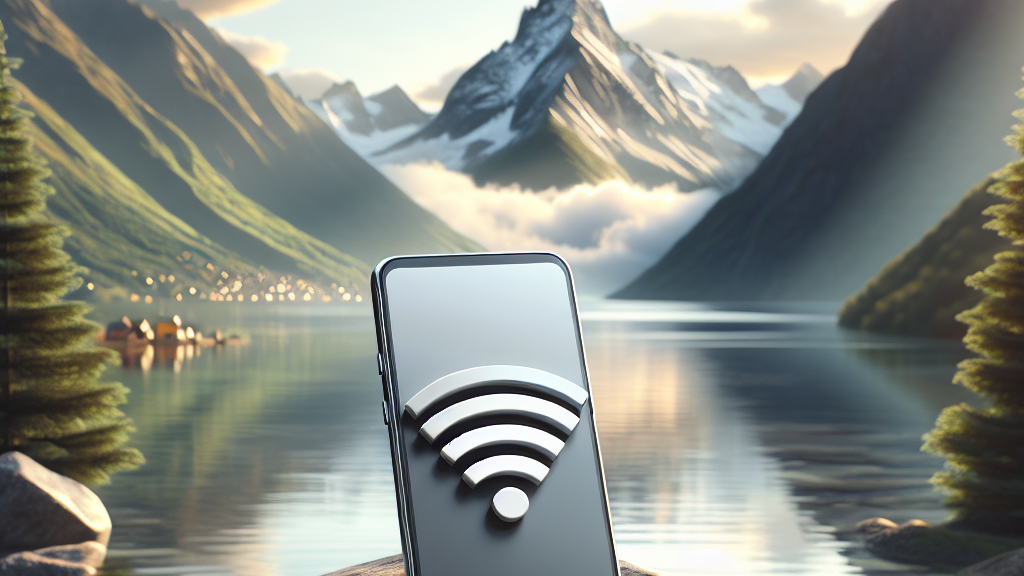Are you a frequent traveler who relies heavily on Wi-Fi connections? If so, then you understand how frustrating it can be to find reliable internet access while on the road. In our fast-paced, tech-driven world, having a secure and stable Wi-Fi connection is no longer a luxury, but a necessity. Whether you’re a digital nomad, a business traveler, or simply someone who wants to stay connected with loved ones while exploring new places, finding a reliable Wi-Fi connection is crucial. In this article, we will explore some tips and tricks to help you find the best Wi-Fi connections while traveling, ensuring that you can stay connected wherever your adventures take you.
Researching Wi-Fi Options Before Traveling
When planning a trip, it’s important to research the Wi-Fi options available at your destination. This will ensure that you stay connected and have a reliable internet connection throughout your travels. Some hotels and accommodations may offer free Wi-Fi, while others may require an additional fee. By checking the connectivity options beforehand, you can plan accordingly and make informed decisions about your internet access while traveling.
Another way to gather information about Wi-Fi options is by reading online reviews of Wi-Fi services in the area you’ll be visiting. Websites and travel forums often have valuable insights and recommendations from other travelers who have experienced the Wi-Fi quality and reliability firsthand. Pay attention to the overall ratings and comments about connectivity speeds and customer satisfaction to get a better idea of what to expect.
Consider purchasing a portable Wi-Fi hotspot for your trip. A portable hotspot allows you to create your own secure Wi-Fi network, using a data SIM card. This can be particularly useful if you’re traveling with multiple devices or if you require a more stable and dedicated connection. Portable hotspots are especially beneficial in areas where public Wi-Fi networks may be limited or unreliable. They give you the flexibility to connect to the internet whenever you need it, without worrying about the availability or quality of local Wi-Fi networks.
While researching Wi-Fi options, it’s also worth considering accommodations that are known to be Wi-Fi-friendly. Some hotels and guesthouses prioritize providing a strong and reliable Wi-Fi connection for their guests. Look for establishments that boast high-speed Wi-Fi or have specific policies in place to ensure a seamless internet experience. This can make a significant difference in your overall travel experience, especially if you rely heavily on internet access for work or communication.
Using Public Wi-Fi Networks Safely
Public Wi-Fi networks are a convenient way to stay connected when you’re on the go, but they can also pose security risks. It’s important to use them safely and protect your personal information. One of the best ways to do this is by avoiding accessing sensitive information while connected to public Wi-Fi. This includes avoiding online banking, shopping, or entering any personal login credentials.
To add an extra layer of security, consider using a virtual private network (VPN) when connecting to public Wi-Fi networks. A VPN establishes a secure connection and encrypts your data, making it much more difficult for hackers or cybercriminals to intercept and access your information. There are various VPN services available, both free and paid, that you can install on your devices to ensure a safe browsing experience while connected to public Wi-Fi.
Keeping your devices updated with the latest security software is also crucial when using any Wi-Fi network, especially public ones. Make sure to regularly update your operating system, antivirus software, and other security-related applications to patch any vulnerabilities and protect against potential threats. This will significantly reduce the risk of your devices being compromised while using Wi-Fi networks, whether public or private.
In addition, it’s important to be cautious of fake Wi-Fi networks that may try to steal your information or infect your devices with malware. These fake networks often have names similar to those of legitimate networks, so it’s essential to verify the network name with an authorized source, such as the establishment you’re visiting or the information desk. Avoid connecting to networks that seem suspicious or ask for unnecessary personal information to ensure your online safety.
Maximizing Connection Reliability
To maximize your Wi-Fi connection reliability, there are a few tips you can follow. When possible, sit close to the Wi-Fi source, whether it’s a router or access point. Being in close proximity to the source can improve signal strength and reduce any potential interference, resulting in a more stable and faster connection.
Be mindful of thick walls or obstructions that may interfere with your Wi-Fi signal. Thick walls or other physical barriers can weaken or block the signal, leading to a weaker connection. If possible, move closer to the Wi-Fi source or choose a different location within the space to minimize signal interference.
If you’re experiencing connectivity issues, a simple restart of your devices may help. Sometimes, temporary glitches or software issues can impact your Wi-Fi connection. Restarting your devices, including your smartphone, tablet, or laptop, can refresh the network settings and resolve any minor issues that may be affecting your connection.
Consider limiting the number of devices connected simultaneously to your Wi-Fi network. When multiple devices are connected at once, it can strain the network and reduce the overall connection speed. By prioritizing the devices you truly need online and disconnecting or turning off Wi-Fi on devices that aren’t actively being used, you can ensure a smoother and more reliable Wi-Fi experience.
